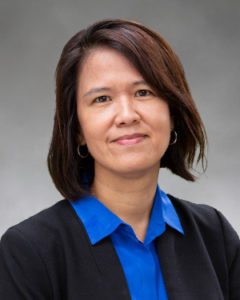Nolan Chang, MD, shares ways Kaiser Permanente is using AI to better the patient experience and reduce physician burnout.
Imelda Dacones, MD, shares vision for addressing social determinants of health at WHCC21
During a recent World Health Care Congress ‘21 (WHCC21) keynote panel, Imelda Dacones, MD, president and CEO of Northwest Permanente, shared her organization’s vision for integrating clinical and social care.
“The vision for social health is that we really elevate it to the same level as physical and mental health,” Dr. Dacones said.

During the panel, “Breaking Barriers to Address SDoH – A Collaborative Approach,” she outlined “three pillars” as a practical framework for health care organizations to execute on that vision.
“First, let’s identify, let’s diagnose what the social risk needs are,” Dr. Dacones said. Once a patient’s needs are identified, she added, “The second pillar is connecting the patient to community-based organizations who can help close social needs gaps.” The third pillar consists of following up with social services organizations as well as with individuals to ensure that they receive appropriate support.
Dr. Dacones added that Kaiser Permanente Northwest started screening its population for social needs in 2016. Screening for social determinants of health has since been extended across Kaiser Permanente.
“We revamped our survey in 2020, and of the 12.3 million members at that time, we identified at least 8-plus million people who said they have at least one social risk factor,” she said, adding that 4 million of those members indicated that they wanted help.
She highlighted Northwest Permanente’s role in Kaiser Permanente’s 2019 launch of Thrive Local, the most comprehensive, far-reaching social health network of its kind. In that program, Kaiser Permanente partners with Unite Us to connect community members with health care and social services providers, to address pressing social needs including housing, food, safety, utilities, and more for millions of people across the United States.
“Because we were first in the [Kaiser Permanente] program to do this in Oregon, we now have Connect Oregon,” Dr. Dacones said. “If you go to their website, you will see the almost 200 partners we have in the community. This is for all Oregonians, and multiple health systems participate in it.”
The program illustrates the power of connectivity for health care organizations, which increasingly are addressing the social determinants of health that affect their patients, she said.
“We all have finite resources, in terms of people, in terms of dollars,” Dr. Dacones said. “But your dollars go a long way when you find like-minded people, like-minded organizations, like-minded businesses … We are all in this together, so do reach out. You don’t have to do this alone.”
Watch the full keynote panel discussion below.


